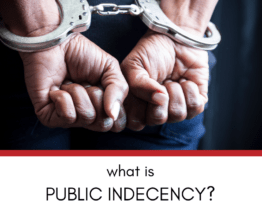
Being accused of a crime you didn’t commit is a terrifying experience. Understanding how innocent people can end up in prison and what you can do to protect yourself is crucial if you’re facing wrongful accusations in Illinois.
Can You Go to Prison if You’re Innocent?
Yes, innocent people can and do go to prison. This guide explains the following:
- How wrongful convictions happen
- Common causes of wrongful convictions
- Steps to take if you’re wrongfully accused
- The role of a defense lawyer in wrongful conviction cases
- How to seek exoneration
Here’s a closer look at each.
How Wrongful Convictions Happen
Wrongful convictions occur for various reasons, leading innocent people to spend time in prison. Mistaken identity, false testimony, or procedural errors can result in an innocent person being found guilty. Sometimes, these convictions happen despite a lack of solid evidence. The criminal justice system is complex, and errors at any stage—from investigation to trial—can lead to an unjust outcome. Understanding the potential pitfalls in the system can help you take proactive steps to protect yourself.
Related: Chicago criminal defense information
Common Causes of Wrongful Convictions
Several factors contribute to wrongful convictions. Misidentification by witnesses is a significant issue, as human memory is fallible and can be influenced by various factors. False confessions, often resulting from intense interrogation techniques, can also lead to innocent people admitting to crimes they didn’t commit. Additionally, flawed forensic evidence and misconduct by law enforcement or prosecutors can play a role. It’s essential to be aware of these issues and seek competent legal representation if you’re facing criminal charges.
Steps to Take if You’re Wrongfully Accused
If you find yourself wrongfully accused, take immediate steps to protect your rights. First, hire a qualified defense lawyer who can guide you through the legal process and build a strong defense. Gather any evidence that supports your innocence, such as alibi witnesses or documentation. Avoid discussing the details of your case with anyone other than your lawyer to prevent misunderstandings or misstatements from being used against you. Remaining calm and cooperating with your lawyer can significantly impact the outcome of your case.
The Role of a Defense Lawyer in Wrongful Conviction Cases
A defense lawyer plays a crucial role in preventing and addressing wrongful convictions. They can thoroughly investigate the charges against you, challenge faulty evidence, and ensure that your rights are protected throughout the legal process. A skilled lawyer will also be familiar with common pitfalls in the justice system and can work to prevent them from affecting your case. If you’re dealing with a wrongful conviction, having an experienced defense lawyer on your side can help you get the best possible outcome.
How to Seek Exoneration
If you’ve been wrongfully convicted, seeking exoneration is the next step. This process often involves appealing your conviction or requesting a new trial based on new evidence or procedural errors in your original trial. DNA evidence has been a powerful tool in exonerating many wrongfully convicted individuals. Working with an attorney who specializes in wrongful convictions can help you navigate this complex process and increase your chances of being exonerated.
Related: What should you do if you’re charged with drug possession?
FAQ About Wrongful Convictions
Check out these commonly asked questions about wrongful convictions. If you don’t see your question here, please call our office and we’ll find you the answers you need.
What Should I Do if I Am Wrongfully Accused of a Crime?
If you are wrongfully accused, immediately hire a defense lawyer. Collect evidence that proves your innocence and avoid discussing your case with anyone other than your lawyer.
How Common Are Wrongful Convictions?
Wrongful convictions are more common than many people realize. Factors like mistaken identity, false confessions, and flawed forensic evidence contribute to these tragic errors.
Can a Lawyer Help Me Avoid a Wrongful Conviction?
Yes, a defense lawyer can help by challenging faulty evidence, ensuring your rights are protected, and building a strong defense. Their expertise can significantly impact the outcome of your case.
What Are the Most Common Causes of Wrongful Convictions?
Common causes include mistaken identity, false confessions, flawed forensic evidence, and misconduct by law enforcement or prosecutors. Understanding these factors can help you take proactive steps.
Related: What you need to know about DUI charges in Illinois
How Can I Get Exonerated if I Am Wrongfully Convicted?
Seeking exoneration typically involves appealing your conviction or requesting a new trial. New evidence, such as DNA, can be crucial. Working with a lawyer who specializes in wrongful convictions is essential.
Understanding how innocent people can end up in prison and what steps to take if you’re wrongfully accused is vital. If you’re dealing with a criminal charge or a wrongful conviction, consulting a Chicago criminal defense lawyer can provide you with the guidance you need.
Do You Need to Talk to an Attorney?
If you’ve been accused of a crime, we may be able to help you – and don’t worry: It’s completely confidential. Call us at 847-920-4540 or fill out the form below to schedule your free, private consultation with an experienced and skilled Chicago criminal defense attorney now.
Contact Us
"*" indicates required fields









